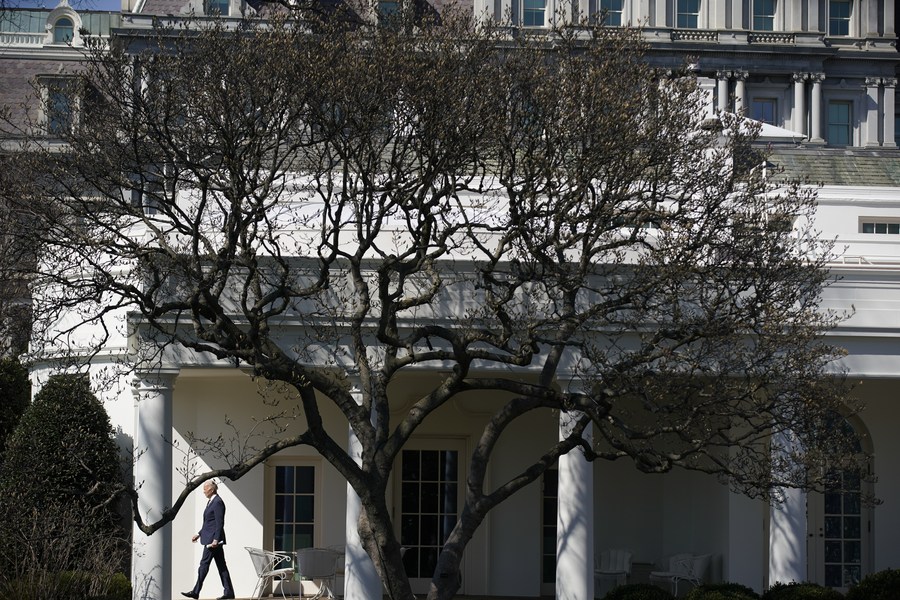A U.S. Debacle on the Taiwan Island

The U.S. side should know well that the Chinese side will never retreat from its principled stand on the Taiwan question and know well its determination and capability to safeguard national sovereignty and territorial integrity.
When Joe Biden took office in January 2021, it was believed in China, the United States and the wider world that the new administration would abandon the Donald Trump administration’s hostile policy toward China and return to normal bilateral relations. Unfortunately, the Biden administration has not only adopted its predecessor’s China policy, but is even outdoing it in some areas. A striking example is its stirring up of conflicts across the Taiwan Straits, so as to contain China’s development. However, as the result of the local elections on the Taiwan island has shown, the U.S.’ careful arrangements in Taiwan are falling apart.
Taking advantage of the Taiwan question is part of the U.S. Government’s China-containment strategy. The Biden administration’s first move is helping Taiwan enhance its fighting capacity, which leads to inflated confidence within Taiwan’s Democratic Progressive Party (DPP).
On February 11, the White House released its Indo-Pacific Strategy, which states that the United States will help Taiwan to enhance its “self-defense” capacity. Soon after, the U.S. Department of State approved the sale of $1.1-billion worth of military equipment to Taiwan, including offensive weapons like air-to-air missiles and anti-ship missiles. Officials from the Biden administration openly made irresponsible remarks that if Taiwan meets “troubles,” the United States will offer it its “protection,” giving a false impression to the DPP that the United States would send troops to help Taiwan. Meanwhile, the United States also tries to consolidate the sense of fear within the DPP by referring to the Russia-Ukraine conflict, pushing ideas that it’s Ukraine today and will be Taiwan tomorrow. The U.S. has also urged some of its allies to make similar remarks to play up the Chinese mainland’s “military threat” to Taiwan.

The Taiwan question is a red line for China-U.S. relations, but the Biden administration is challenging the one-China principle by encouraging high-ranking U.S. officials’ interactions with Taiwan officials. The culmination came on August 2, when Speaker of the U.S. House of Representatives Nancy Pelosi went to Taiwan.
It triggered high attention throughout the world that a possible war across the Straits could break out at any moment. However, in the end neither side of the Straits played into the hands of Washington. Particularly, the Chinese Government demonstrated strong self-restraint. More importantly, people on the island have come to realize the DPP’s evil practices that are pushing Taiwan into jeopardy. They thus expressed their discontent through their votes. As the results of the local elections in Taiwan in late November have revealed, among the 21 elected county mayors, the Chinese Kuomintang has won 13 seats, the DPP has won five seats, the People’s Party has won one seat, and the other two are independent candidates. Tsai Ing-wen later announced that she would resign as chairman of the DPP to show her responsibility for the party’s poor performance in the local elections in Taiwan.
Chinese President Xi Jinping reaffirmed China’s stance on the Taiwan question when meeting Biden in Bali, Indonesia, on November 14. The U.S. side should know well that the Chinese side will never retreat from its principled stand on the Taiwan question and know well its determination and capability to safeguard national sovereignty and territorial integrity. The United States should refrain from direct conflicts with China because of Taiwan and never should it allow the Taiwan question to obstruct cooperation between China and the U.S.
The Chinese Government has always tried to maintain peace and stability across the Taiwan Straits, carrying on with the principle of peaceful reunification, and One Country, Two Systems. A military approach is the last resort that it will have to turn to if secessionists advocating so-called “Taiwan independence” are too rampant to bear.
People in Taiwan are also peace-loving. This year, they have been living under the shadow of war due to secessionist clamoring on the island. Anti-war sentiments have thus surged, which is an important reason for the DPP’s failure in this recent “election.”
 Facebook
Facebook
 Twitter
Twitter
 Linkedin
Linkedin
 Google +
Google +










